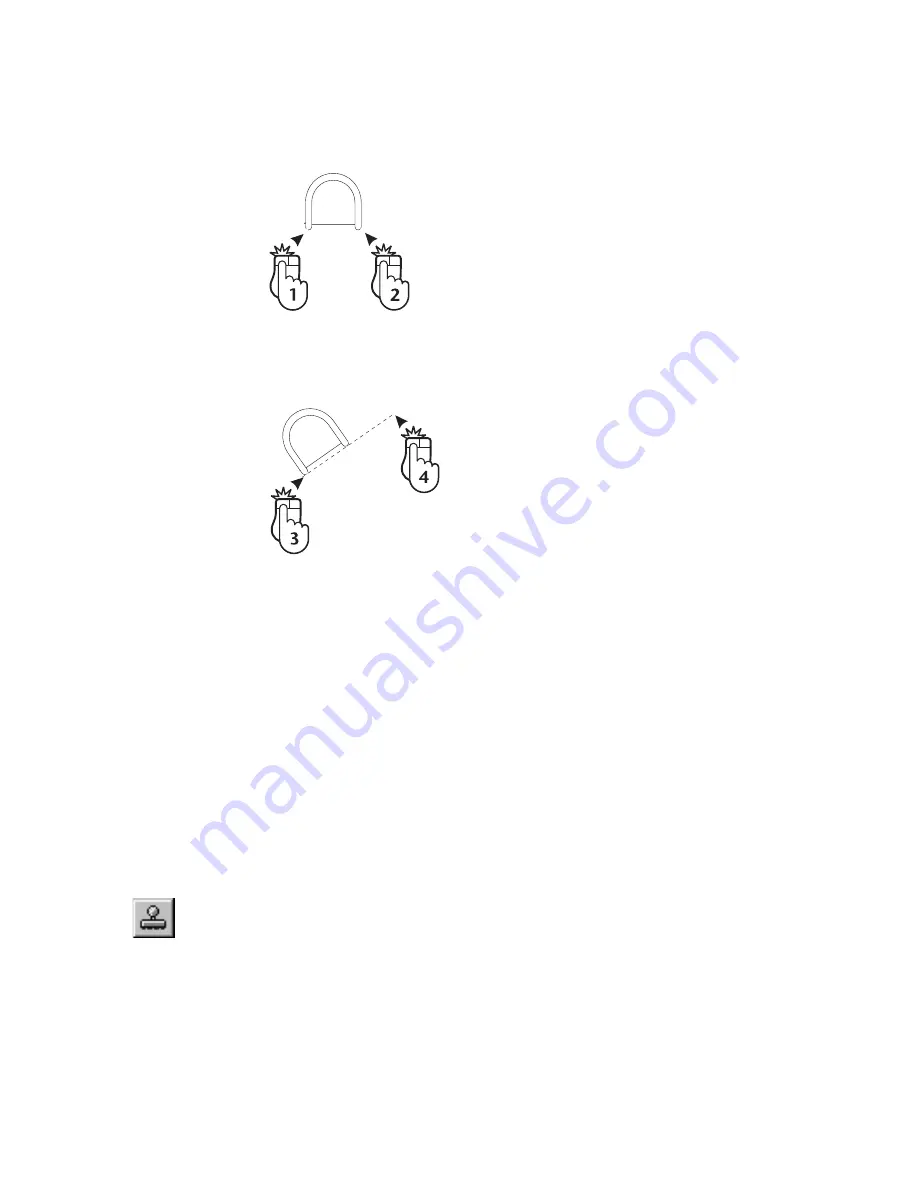
Rubber Stamping an Entity
|
273
4
Enter the startpoint of the axis to define the current location and orienta-
tion of the selection.
5
Enter the endpoint of the axis.
6
Enter the startpoint of the new axis to define the new location.
7
Enter a point that defines the orientation of the new axis.
Rubber Stamping an Entity
Rubber Stamping allows you to place multiple copies of an entity, or entities,
in a drawing. Using the current contents of the selection set, Rubber Stamp
creates an exact duplicate of the selection set that can be placed in a drawing
multiple times. You can place the copies visually or use any combination of
snaps or lock modifiers. For more information on using snaps and lock
modifiers, see the chapter titled “Entering & Modifying Points,” which
begins on page 99.
To rubber stamp an entity by entering a single point
1
Select an entity or entities to copy.
2
On the Edit menu, click Transform, Rubber Stamp, or click the Rubber
Stamp button on the All-In-One toolbar, or right-click the entity, then
click Rubber Stamp on the pop-up menu that appears. An outline of the
entity appears and follows the pointer.
Summary of Contents for AUTOSKETCH 8
Page 1: ...October 2001 AutoSketch User s Guide RELEASE 8...
Page 12: ...2...
Page 20: ...10 Chapter 1 Welcome...
Page 28: ...18 Chapter 2 Important Concepts...
Page 42: ...32 Chapter 3 Screen Layout...
Page 44: ...34...
Page 68: ...58 Chapter 5 Setting Up a New Drawing...
Page 84: ...74 Chapter 6 Customizing the Grid...
Page 136: ...126 Chapter 10 Entering Lengths Angles...
Page 138: ...128...
Page 164: ...154 Chapter 12 Polylines Polygons Curves...
Page 176: ...166 Chapter 13 Arcs Circles...
Page 194: ...184 Chapter 14 Symbols...
Page 206: ...196 Chapter 15 3D Effects...
Page 220: ...210...
Page 256: ...246 Chapter 19 Markers...
Page 258: ...248...
Page 270: ...260 Chapter 20 Selecting Deleting Entities...
Page 274: ...264 Chapter 21 Undoing Redoing Repeating Actions...
Page 308: ...298 Chapter 23 Trimming Entities...
Page 340: ...330 Chapter 26 Making Inquiries...
Page 342: ...332...
Page 350: ...340 Chapter 27 Storing Data in a Drawing...
Page 360: ...350 Chapter 28 Retrieving Data From a Drawing...
Page 366: ...356 Chapter 29 Using Web Tools...
Page 388: ...378 Glossary...
Page 400: ...390 Index...






























